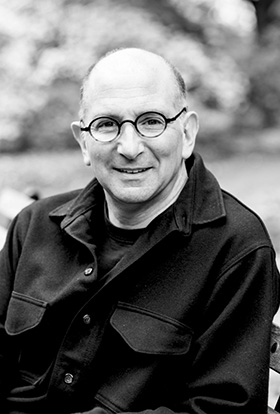
By Rabbi Will Berkovitz, CEO
Hear Will’s Message
A reading of this message is available here.
I am feeling nostalgic these days. It may be because I turned 55 this year or I am reflecting on my ten-year anniversary at JFS. I feel it in my bones. It has me thinking of the word “legacy.” It is a good word to consider as the Jewish High Holidays are upon us. Legacy asks us to look back from a future world without us. Legacy asks us not what we are doing with our brief time here, but what will we have left behind when we are gone. What, if anything of who we are, will endure?
It’s these thoughts that lead me to consider why I love the wilderness. Whenever possible, I try to be in the woods. I appreciate wild places for the vast interconnectedness of roots, dirt, and wildlife – the seen and the unseen. The golden rule of wilderness travel is, “leave no trace behind.” Upon reflection, that sounds more like a floor than a ceiling in terms of expectations. It really is a low bar to ask that we don’t leave things worse than we found them. As we place bets with the decisions we make throughout our lives, a good yardstick to use is, “Do I believe this choice will make the world better or worse from the perspective of the future? And for who?”
For Jewish people, the Holiday of Yom Kippur teaches we are to dress in white – traditionally we wear the same garments we will one day be buried in. The day is structured as an immersive experience for our souls. We are given the opportunity to see our lives from the perspective of our deaths and then, when the gates close and the final shofar is blown, we are given our lives back for another year…if we are lucky. It is an opportunity to reflect on our legacies and for 24 hours consider what we will leave behind – to honestly reflect on the impact of our accumulated actions. We may be admired for what we have achieved, but are we respected by those who really know us?
My father used to say, “You can win the battle and lose the war.” I am sure there is a less militaristic version of that sentiment but, like the salt my mother used to throw over her shoulder, it is how their memories endure and changing them would somehow be a diminishment.
For some of us our deepest aspiration is to leave a dent in the universe – some existential graffiti that says we were here. Very few succeed. And fewer still succeed beyond a generation. Time has an elegant and humbling way of washing things away. I have decided to aim for something a bit more modest. There are fallen trees in the wilderness called nursemaid trees. Having fallen, their trunks provide the nutrients for the next generations until nothing of the original tree remains. It is a bit like parenting. If we are successful, what endures is more emotional, spiritual, and moral – passing along not just the lessons we have learned, but those of our ancestors as well. “Just as my ancestors planted for me, so do I plant for my descendants.”
For me, this is a worthy legacy.
Maybe, having been given our few years on earth, it is enough to admire the beauty of it all and to ensure both the beauty and appreciation endures. We don’t need to be influencers, or the smartest person in the room or even to be in the room at all. Is it enough to just be? To be grateful. To build meaningful relationships. And to leave our small corner of the cosmos a bit better than we found it.
The world is made up of far more people living heroic normal lives than heroic, universe denting, dramatic lives. And, in the end, there is plenty of drama in the ordinary. It is exactly because it is ordinary that we can’t recognize it as dramatic or heroic. I have always found it instructive that the Holy One chose a humble shrub from which to speak to Moses and not some thundering voice from heaven.
I have come to a deep appreciation for the power and impact of small things. A kind word or a note of recognition. Stepping in to help without being asked. As a mentor once told me, “Pay attention to the nickels and the dollars will take care of themselves.”
This year I want to focus more closely on the nickels in my relationships and choices. I remember when I was in my twenties, an older married friend was reflecting on love. She said that love is really measured by the “accumulation of intimate moments spent together. The ordinary ways we show up.” It is the smallest choices gathered over years that define us. Love is built by the nickels, the small acts more than the dollars of grand fleeting gestures. That is true for our legacies as well. And that is enough.




Sorry, comments are closed for this post.